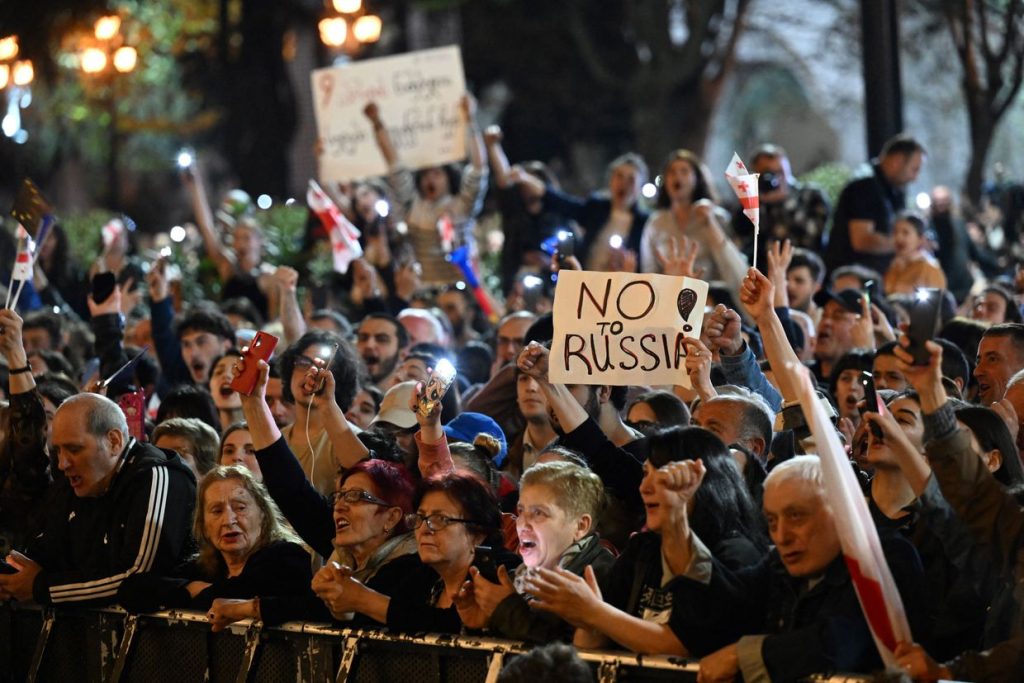The European Parliament recently passed a resolution condemning Georgia’s controversial foreign agents law, which was introduced by the ruling Georgian Dream party in 2023. The law, if passed, would require organizations receiving foreign funding to be labeled as “foreign agents” and would allow authorities to closely monitor their communications. The bill has been likened to similar legislation in Russia and has been met with mass protests in Georgia. The European Parliament emphasized that EU accession negotiations should not be opened as long as this law is in effect, as it goes against the Copenhagen criteria for EU membership. Georgia was offered candidate status for EU membership in December 2023, but the passage of this law could jeopardize its chances of joining the EU.
Despite ongoing protests against the controversial foreign agents law, the Georgian parliament proceeded to approve the legislation with 83 lawmakers voting in favor out of 150 members. Opposition lawmakers boycotted the vote in protest against the law. The bill, originally introduced in 2023 and then abandoned due to public backlash, was recently revived by the Georgian Dream party under the guise of a “transparency of foreign influence” bill. The legislation has been dubbed the “Russian law” in Georgia for its resemblance to laws in Russia used to target Kremlin critics. The passage of this law has sparked widespread condemnation from the European Parliament and may have negative implications for Georgia’s aspirations to join the EU.
The mass protests against the foreign agents law and the ruling Georgian Dream party have been ongoing since the reintroduction of the legislation in April. Demonstrators have been calling for the law to be scrapped and for greater protection of civil liberties in Georgia. The European Parliament’s resolution highlighting the detrimental impact of the law on Georgia’s EU membership prospects has further fueled the public outcry against the bill. Critics argue that the law undermines democratic values and stifles freedom of expression by targeting organizations that receive foreign funding. The Georgian government’s persistence in pushing forward with the law despite the backlash reflects a concerning disregard for the will of the people and international norms.
The resolution passed by the European Parliament sends a strong message to the Georgian government about the potential consequences of enforcing the foreign agents law. The resolution specifically stated that EU accession negotiations should not proceed as long as the law remains in effect, underscoring the seriousness of the issue. Georgia’s candidacy for EU membership has been put on the line due to the controversial legislation, which has drawn parallels to repressive laws in Russia. The continued protests and international condemnation highlight the importance of upholding democratic principles and respecting the rights of civil society organizations in Georgia. The fate of the foreign agents law and its implications for Georgia’s future remain uncertain amidst the ongoing political turmoil and public unrest.
In summary, the controversy surrounding Georgia’s foreign agents law has sparked widespread condemnation both domestically and internationally. The European Parliament’s resolution, along with ongoing protests in Georgia, reflects the deep-seated opposition to the legislation and its potential impact on the country’s democratic values and EU membership prospects. The Georgian Dream party’s persistence in pushing forward with the law despite public outcry raises concerns about the government’s commitment to upholding democratic principles and protecting civil liberties. The coming days will be critical in determining the fate of the foreign agents law and its repercussions for Georgia’s future as it navigates the delicate balance between domestic governance and international relations.


